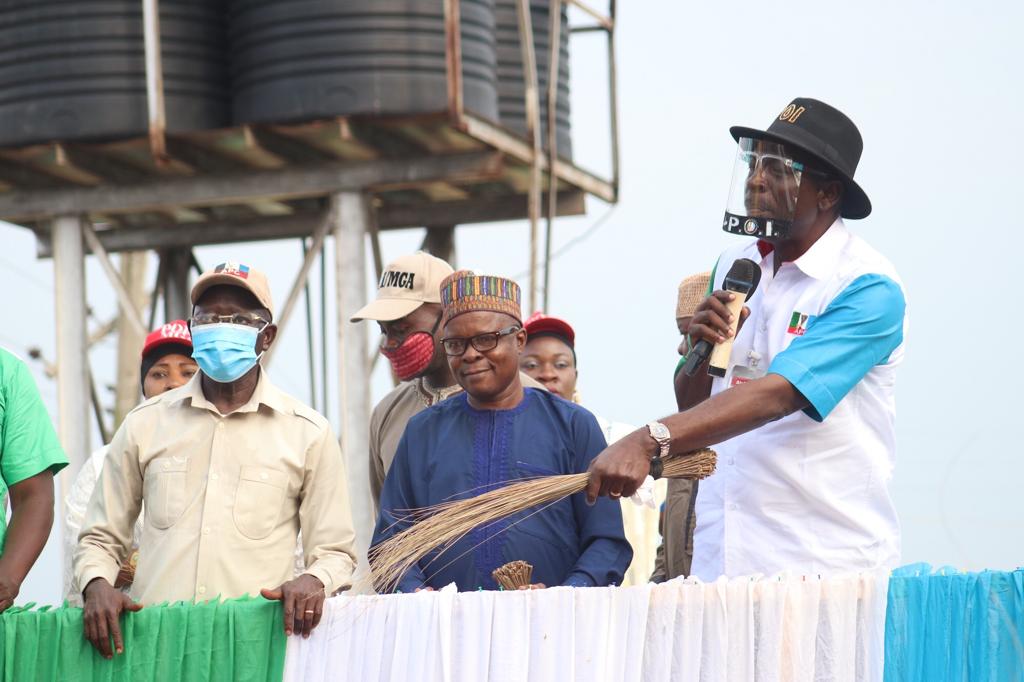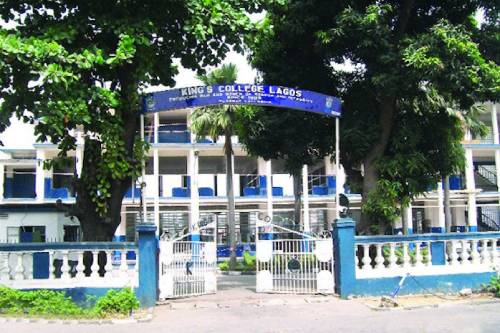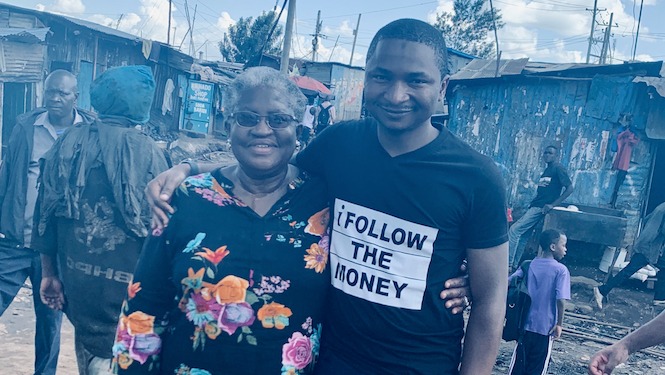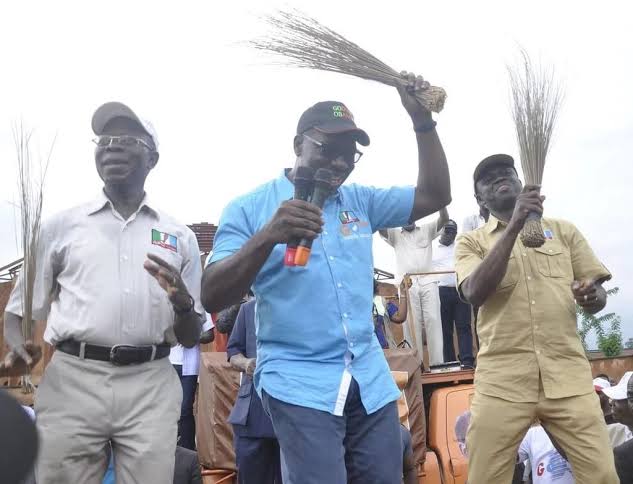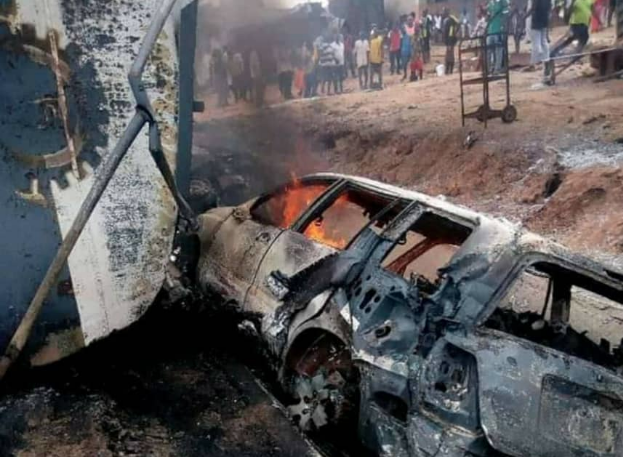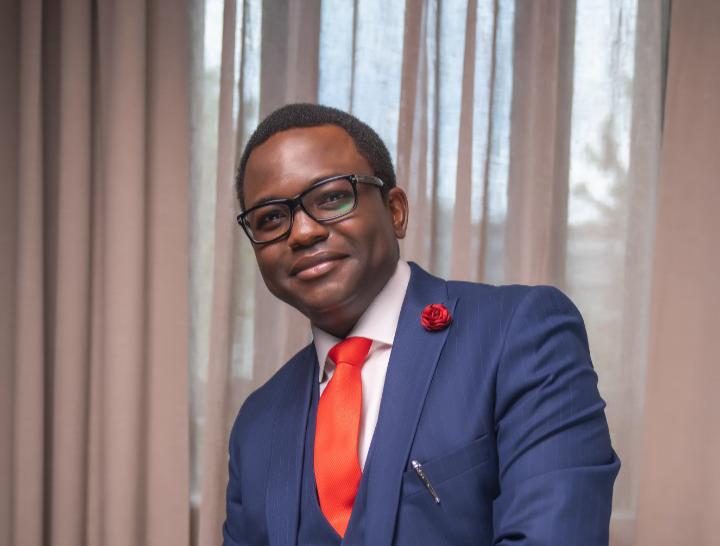BY PAUL OBI
“…They said if you don’t vote, you get the government you deserve, and if you do, you never get the results you expected.”
– E.A. Bucchianeri
Nigeria’s long history of turbulent elections and gunboat democracy have come to define the quality of leadership, governance and development, the country has faced within the last two decades. Peaceful and credible elections have a way of impacting the trajectories of economic growth and development a country encounters in nationhood. On the other hand, garrison elections, the type that characterized the 2019 Presidential Elections, Kogi, Osun, Kano and Bayelsa States are rather set to undermine the state and its pathway to legitimacy.
Advertisement
Paul Collier in his cerebral book, ‘Wars, Guns and Votes: Democracy in Dangerous Places’ succinctly captured Nigeria’s peculiar electoral mess, arguing that “in Nigeria, politicians had clearly resorted to socially dysfunctional strategies of vote winning” for purposes of ascending the country’s stupendous and ostentatious presidential and federal systems. Collier’s prognosis of Nigeria’s electoral crisis was carried out ten years ago. Ten years after, the conduct of our elections have taken a dramatic turn for the worst, with severe and unintended consequences.
Ordinarily, the conduct of elections is the most guiding civic responsibility in a democratic society. With state actors and electorates expected to play their shared roles with all sense of patriotism, elections remain the best democratic instrument to hold leaders and those with the levers of power to account. Yet, this civic engagement has been all but nebulous, chaotic and worst of all, undemocratic in Nigeria.
As citizens and electorates in Edo State go to the polls tomorrow, Saturday, 19th September, 2020 to elect their governor, there is no sign yet to indicate that the election will be free and fair. And that the democratic choices Edo electorates would make will stand the test of time and railroad Nigeria to dispute-free elections. Already, a cloud of violence and state actors’ culpability stare the country, with the prospect of a repeat of gun-wielding Kogi State governorship election last year.
Advertisement
As Godwin Obaseki of the People’s Democratic Party(PDP) and Osagie Ize-Iyamu of the All Progressives Congress (APC) square up to seek the people’s mandate, the two critical components that will make or mar the governorship election remain the Independent National Electoral Commission (INEC) and security agencies. INEC’s culpability is traceable to its blatant and infectious refusal to reform, digitise and embrace technology to prevent the raping of democracy in broad day light.
Added to that, President Muhammadu Buhari’s refusal to sign the Electoral Act into law is another deliberate action that has continued to inhibits Nigeria’s smooth ride to reliable elections. When you combine the infiltration by security agencies and shoddy activities of university dons during the conduct of elections, you have stolen electoral mandates, camouflaging as legitimate governments.
If we must prevent the ruin of tomorrow’s Edo Governorship Election, INEC must be ready to wear the toga of transparency beyond the current talk shops it has been busy setting up here and there with reckless abundant ahead of the Edo and Ondo polls. As past experiences have shown, after the talkshops, the elections conducted end up being the worst than the previous one. The brigandage in our elections often get sophisticated after every assurance by INEC that things will be done well and that the elections will be free and fair.
Critically, the United States(US) and United Kingdom (UK) visa ban on political thugs and politicians who use violence and deploy security agencies to manifestly undermine Nigeria’s democracy and electoral system is commendable and remains a deep cut on the purveyors of evil in the land. The UK’s High Commissioner to Nigeria,Catriona Laing’s warning such punitive measures could “include restrictions on their eligibility to travel to the UK, restrictions on access to UK based assets or prosecution under international law” is well in order in the attempt to redeem Nigeria’s electoral system quagmire. Because ordinary Nigerian citizens are helpless and hapless, the US and UK should go a step further to deal a big blow on family members of politicians who sponsor and ignite violence, including strangulating their foreign investment. This has become exigent given that the vicious circle of electoral violence and rigging of elections has had a telling catastrophe on the Nigerian state both from political and development standpoint.
Advertisement
Although, there are efforts to compel key actors and stakeholders to abide by the rules of the game, the greatest challenge to the conduct of elections in Nigeria will never vanish until we ensure due diligence and vigilance on the activities of INEC officials and security agencies during and after the elections. Resolutions made by the contestants will ever remain a mere ritual if INEC and security agencies’ neutrality in the elections is in doubt.
Further, the National Peace Committee attempt to foster credible elections will continue to be a mirage and ceremonial event if the need to secure elections is not directed to INEC and security agencies. Regrettably, the National Peace Committee’s non-committal posture during the 2019 general elections in the face of state actors criminal and brazen rigging of elections aided by security forces and other non-state actors was a complete led down. What then is the essence of a peace agreement if state actors will in turn deploy brute force, rig elections and intimidate voters?
Another sinister moves that have already found its way to our electoral system is votes and voters suppression. In many instances, contestants with undemocratic ambitions and links to Abuja’s rapacious power circles and access to security agencies have often used security agencies to suppress votes and voters. These scenarios were glaring during Osun, Kano, Kogi and Bayelsa States governorship elections. This is often achieved by harassing voters in opponents’ stronghold, constituencies and polling units. It also involves creating and manufacturing violence and panic atmosphere to keep voters in perpetual fear and prevent them from going out to vote on the day of elections. These are the innocuous and audacious techniques in thwarting the people’s mandate and rigging votes; that those interested in credible polls should all pay attention to.
As it stands, and going by the political fireworks already at play in Edo State, the governorship election may end up as a contest for people’s power or gunboat democracy. Clearly, and sadly, these are the variables and options available to voters. People’s power can only be guaranteed by free polls without any interference and intervention. For gunboat democracy, the use of brute force, violence, rigging and intimidation by state actors and political thugs often shaped the outcome of elections, with negative implications for governance and politics.
Advertisement
Going forward, the choice for who governs Edo State, should be left to Edo voters to make that democratic decision. As Governor of Sokoto State, Rt. Hon. Aminu Waziri Tambuwal posited during his appraisal of the Edo State elections, “the preamble of the resolution affirms that while democracies share common features, there is no single model of democracy and that democracy does not belong to any country or region…Democracy is a universal value, based on the freely-expressed will of people to determine their own political, economic, social and cultural systems, and their full participation in all aspects of life.”
Yet, the choice between the two candidates and parties lies with Edo people. While they have the unimpeachable constitutional rights to showcase their people’s power by going to the polling unit and cast their votes for their candidate. The choice of unleashing gunboat democracy in the Edo Governorship election lies with the state actors: INEC, security agencies and other key stakeholders. Election, in itself, is merely a vehicle for good governance and better society. For Edo, will it be a contest between people’s power, slavish loyalty to godfatherism or a full entrenchment of gunboat democracy? The answer lies with the awesome time and in days to come.
Advertisement
Obi is a journalist and political communication expert based in Abuja
Advertisement
Views expressed by contributors are strictly personal and not of TheCable.
Add a comment
